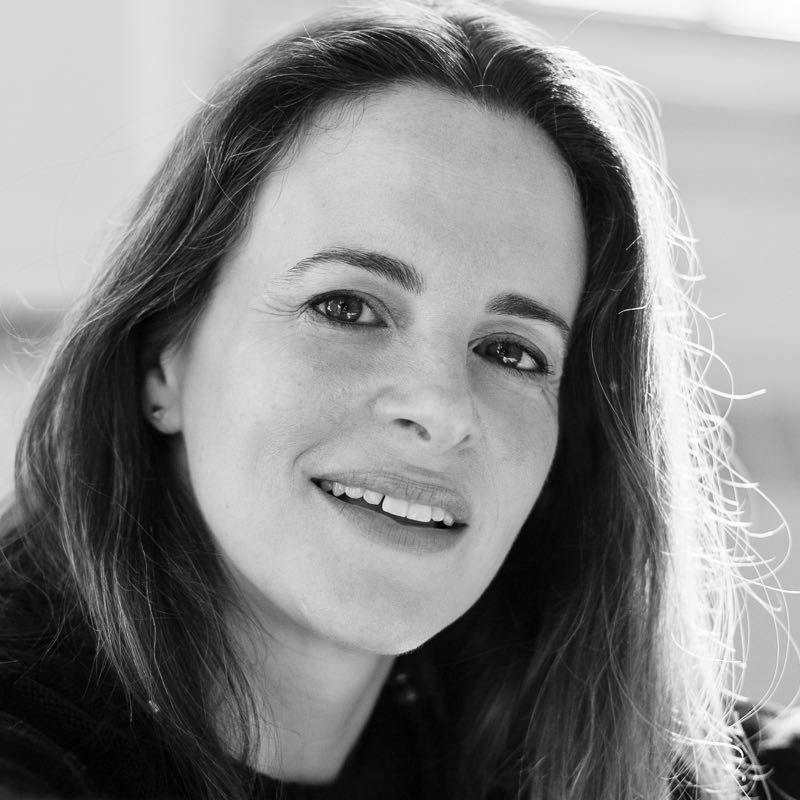Maria Dizzia in the Director’s Chair
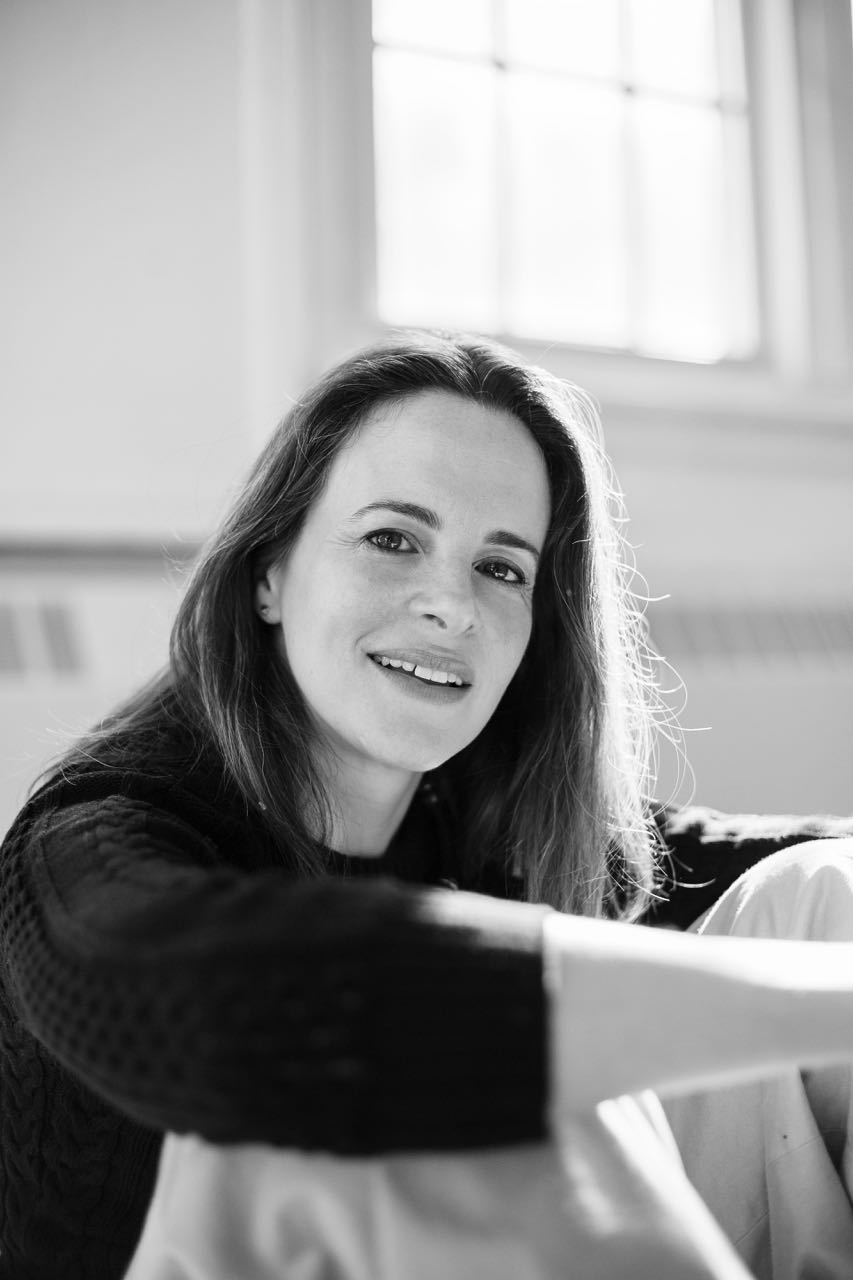
Written by Victoria Myers
Photography by Tess Mayer
February 20th, 2018
Last spring, Maria Dizzia appeared in the Off-Broadway production of If I Forget, delivering another critically acclaimed performance. She is known for the nuance and complexity of her acting, which has made her a favorite of writers and directors, and earned her a Tony nomination in 2010. Now, almost a year later, she is making her professional directing debut with The Loneliest Number by Lizzie Vieh, which begins performances on February 22nd and revolves around a married couple experimenting with non-monogamy. During our last interview with Maria, a major theme was duality in acting and theatre, so it seems unsurprising that she has now turned her attention to directing and bringing her perspective to that side of the table. We recently spoke with her about her directing process and how it’s forming, how she became interested in directing, and being a woman in theatre in the age of #MeToo and #TimesUp.
How did you get involved as a director for The Loneliest Number?
Justin Yorio, who is the Artistic Director of the Amios theatre company, is a friend of mine from college. He had invited me to be a part of a short play festival they do called Shotz They commission playwrights to write five-minute plays on a topic, and they have a couple of rehearsals, one tech, and then throw them up. They’re really well attended and it’s a really fun thing for both the actors and for the playwrights. Finally, our schedules worked out, and I was able to direct one of the five-minute plays. Directing had always been something that I was interested in, and five minutes seemed like the right way to start. I had a really great experience, and it felt like the way that I worked and that the way the company worked fit together, and he asked me if I’d be interested in directing something longer. I said that I would be interested in doing that, and it was really Justin who put this whole thing together. Lizzie Vieh, who is the playwright, wrote a piece for Shotz! that was five minutes long, and Justin really liked it and he asked her if she would develop it into a [full-length] play. Once she developed it, he put us together, and I directed a reading of her play in a newer thing that they have called First Draughts. People responded really well to that reading, and that gave Justin the confidence to try to do a main stage production of it. That’s how I got involved.
What type of pre-production work did you do? That’s a major component of directing, and one that’s not discussed as much as what happens in the rehearsal room.
Lizzie and I spent a fair amount of time together. We arranged a lot of informal readings. We continued to develop the play. One of the things that I really liked about directing is that as an actor, any time you read a script, you always have images of what’s going on, of the world that your character lives in, and what your character looks like, and the reality that holds the world that you’re a part of. I think any reader has that impulse when you read something. It was really nice as a director to start to investigate those images rather than those just being impressions and information that would help me do a role. It was really nice to think, “Oh, these impulses that I have are actually the beginning of what the reality would be for the play.”
I had a really helpful conversation with Lila Neugebauer about directing, and she introduced me via email to Frank Oliva, who is our set designer. That was the first person that I had a conversation with about the play other than Lizzy and Justin. In having conversations with him about the play and what the world looks like and sharing images with him, we started to talk about what the themes of the play were. Then once we got to that point, I started to listen to a lot of music. Some of the music is stuff that I was thinking about using as cues in the play and some of it was just for the tone and the feeling of it and because music is so emotional, and thinking, “Oh, this is what this scene is about. It has this melody or this feeling to it.” I really enjoyed it a lot. That was about a year ago, when I started talking with Frank about the set and he shared designs with me, and then it was so thrilling to finally see the model that he made.
I didn’t do any specific reading to prepare for the play, because it’s happening in the current time and it’s about people who are about my age, so I felt like a lot of what was going on was very accessible to me. Everything that I did read and everything that I did see was always through the lens that this play was happening, and so that also felt like a big part of it. That there are little inspirations, if they were visual or quotes, that just helped me articulate the world of the play so that I could share it with the actors, so that they could start to do their work.
You mentioned that when you read a play you always get images and stuff like that in your head. Do you find your brain working in a different way as a director than as an actor once you started to really dive in?
I think so. I think because usually those images and things that would come to me while I’m reading would become metaphors really fast. Because I wasn’t going to be able to execute any of those things. I wasn’t going to be able to have a conversation with the lighting designer and say, “When I read this scene I imagined it with this shaft of light,” or something. So the shaft of light that I would imagine would be a metaphor for what the character is experiencing or what she felt about her relationship with the person. The thing that was so exciting [about directing] was that those things weren’t metaphors anymore, the images were things that could be realized.
What surprised me was I didn’t realize that was the seed for all of those things. I think my first concern and worry about directing was that I was not going to have a vision. Then I realized that everyone has a vision. You can’t help it. When you read a book, you have a vision. It was really exciting to get to nurture that vision, because I do think that as an actor you do engage with your vision and with your idea of things, but you also have to keep touching base with interpretation, and channeling and interpreting other people’s vision. As a director it’s really nice to jump into the water more fully.
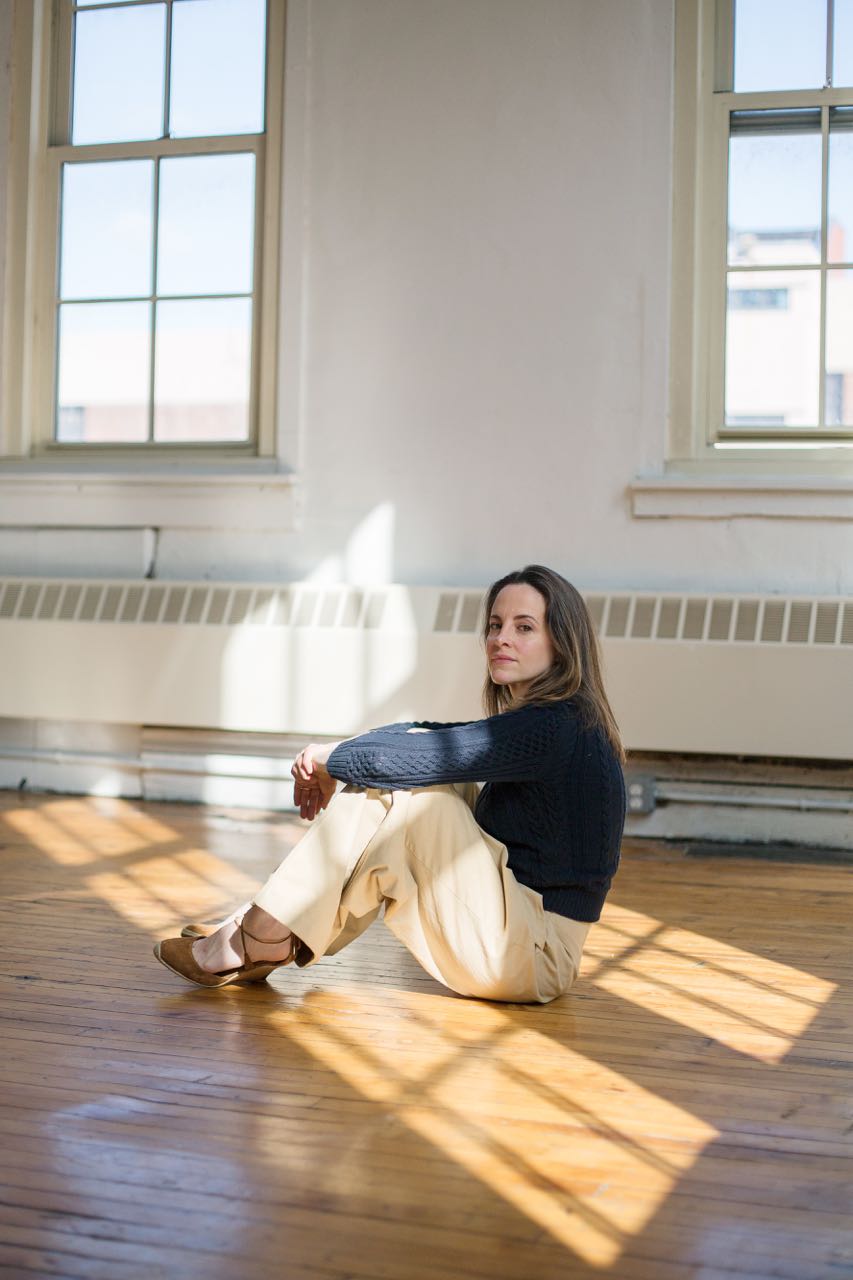
Now that you’re in rehearsal, what do you find most interesting about the themes of the play and about being in this part of process as a director?
I think what I find most interesting about the themes of the play is that they are elusive. I feel, based on other rooms that I’ve been in and what I’ve learned from other directors, that I should hold onto the theme gently. You don’t want to be nailing your play down or anything like that and saying this is what it is. You just want to be providing a context and a way to guide people. As we started to work on it the first week, it felt more like a laboratory rather than, “These are the themes, I know they’re the themes, and now I want to see them realized for me in 3D.” Instead, it was more like, “These are some ideas of what I think the play is about and what I think that it’s grappling with, and let’s see if that’s actually true, and let’s see what you feel as actors.” The first week was both exciting to make those discoveries, and also a little scary to feel like now I’m not totally sure what the play is about. But then I feel like it gets away from you and then it starts to coalesce again in a new order.
The thing that I’m really aware of with the actors is that there are all these different universes on stage—it’s tied to what I was saying before. I know that they’ve completely imagined the whole play in their mind. Everybody has their own version of the play in their mind. I’m very aware that when I’m watching something as the director and I say what I see or I ask if something could move in another direction that the person’s whole idea of the play needs to be changed in a way to accommodate that. It’s not a simple thing to ask someone, “Can she find her way over to the table?” That actually involves a lot of stuff. I think an actor who is invested has to figure out why and what they’re doing and change their idea of the world that they’re living in.
The thing that I’m working on now is finding the balance of when it’s helpful to an actor to make a suggestion gently in terms of honoring the world that they’re navigating, and when it’s more helpful actually to create more clarity and say she needs to be down at the table. Because I think the actors, and I know from my experience, also respond to that. It’s also really helpful when people stick some flags in the sand and then allow you to navigate your way between them. I’m learning that. I think that’s probably something that people work on their whole lives as directors—figuring out when to make space for people and when to actually narrow the space.
In a lot of the conversations that I’ve had with directors, one of the things that’s come up is how there’s a big learning curve of how to be in the room and how to give a note. And it’s a hard thing to learn since if you’re a director, you don’t necessarily see a lot of other people directing other than when you’re assisting.
Right, I think that’s the thing that’s the most fascinating about it. I did think one thing that I benefited from as an actor was that I’ve gotten to see a lot of different directors work, and that is something with my director friends is that I’m like, “Right, you have not.” You can have a close friendship with another director, but you have not been in the room with them and seen it. I do think that was really helpful to me.
I think I was helped in some way in that I’ve been teaching for a couple of years and have gotten to figure out some of that stuff in teaching. I was very tentative when I first started teaching, and I started to see how that tentativeness sometimes is perceived as nurturing and helpful and sometimes it’s just feels like there’s too much room and not enough focus. You’re not really helping the person. I feel like that was a bit of a laboratory to learn how to make decisions.
Anne Bogart talks, in her book on directing, about how there is a certain violence in directing because you’re saying, “No, not this.” I think that in teaching I started to feel a little bit more comfortable with that idea and saying to someone, “Not this.” That the idea that saying it wouldn’t be limiting, but instead opens a person up to all the other things that something could be, so you don’t hang out trying to figure out that one problem that doesn’t work.
I’m still figuring out how to do it. I think that probably directors do it their whole life, because you’re always dealing with different personalities. I don’t think that there’s a way to ever say, “This is how I direct,” and somehow every single personality responds to it. It seems like something that you have to keep adjusting and figuring out in the room as part of the improvisation of being a director. I like the idea of talking about real life as being an improvisation.
It seems really important to me that actors have secrets, and so I do feel that when I talk about the play with people, I like to walk up to the actor and engage and have a conversation with them rather than sitting in a chair and kind of talking to them loudly across the space where everyone can hear. I think it’s important that not everybody knows what you’re doing and that not everybody knows the innermost thought of the character that you’re playing, because otherwise I feel like you don’t have as much of a need to communicate it. I always think as an actor, the only way that it works is that behavior comes out and that there’s something unsaid that your character is saying, and that’s what behavior is. The behavior is trying to negotiate the thing that is unsaid. I feel a need to protect that a lot as a director. Also, it feels like instead of solving a problem in a moment, that you’re more solving a problem that an actor could continue to play with for an entire run and not just be like, “Okay, well, we figured out how to do it today on Tuesday,” in a result-y way.
I remember when we talked before you had mentioned that early in your career you sometimes had an idea of how a role should be played or what the audience was expecting from that role or that type of character, and that you had a process of then navigating around that. Have you found as a director that there is any thought like that creeping in?
I do think that it does creep in. I feel like instead of what it should be, I phrase it to myself like what does it want to be. I do hear rhythms in something and I do hear if a scene ends one way and the play is wanting to have the opposite energy now to lift us out of that moment. Or there are times the play wants to stay here for a little bit. I do feel myself thinking about that stuff and having conversations with the actors about what happens to the energy of the play, which I think results in the volume and the passion of what’s going on at the moment. Is it dialed up or really dialed down? But then the thing I like so much is that then the actors surprise me all the time.
The thing I struggled with as an actor is where you have your idea about the scene when you come in and it’s about trying to figure out that balance of being true to your feelings about what’s going on and also available to what’s actually happening in the room. What’s so nice as a director is I just sit and watch. There is no way that I can impose my idea automatically. If I want to impose an idea on something, I have to stop it, get up, and talk to someone, which is a lot different than when you’re in a scene. I think I find it a little easier to negotiate, because as a director there’s more ruminative time. There’s more time where you can have an idea and you could say to yourself, “I’m not going to do it yet. I’m not going to talk about it yet. I want to wait and see how it unfolds.” But as an actor, I feel like you have an idea about it and if you don’t do it, you didn’t do it. It’s not going to happen. If you don’t do it on that line, then it didn’t become a part of it. I feel like as an actor I’m always in my head thinking, “Is now the time? Which are the right impulses to follow?” It’s nice to be able to sit and think on things and not say things and not act on things.
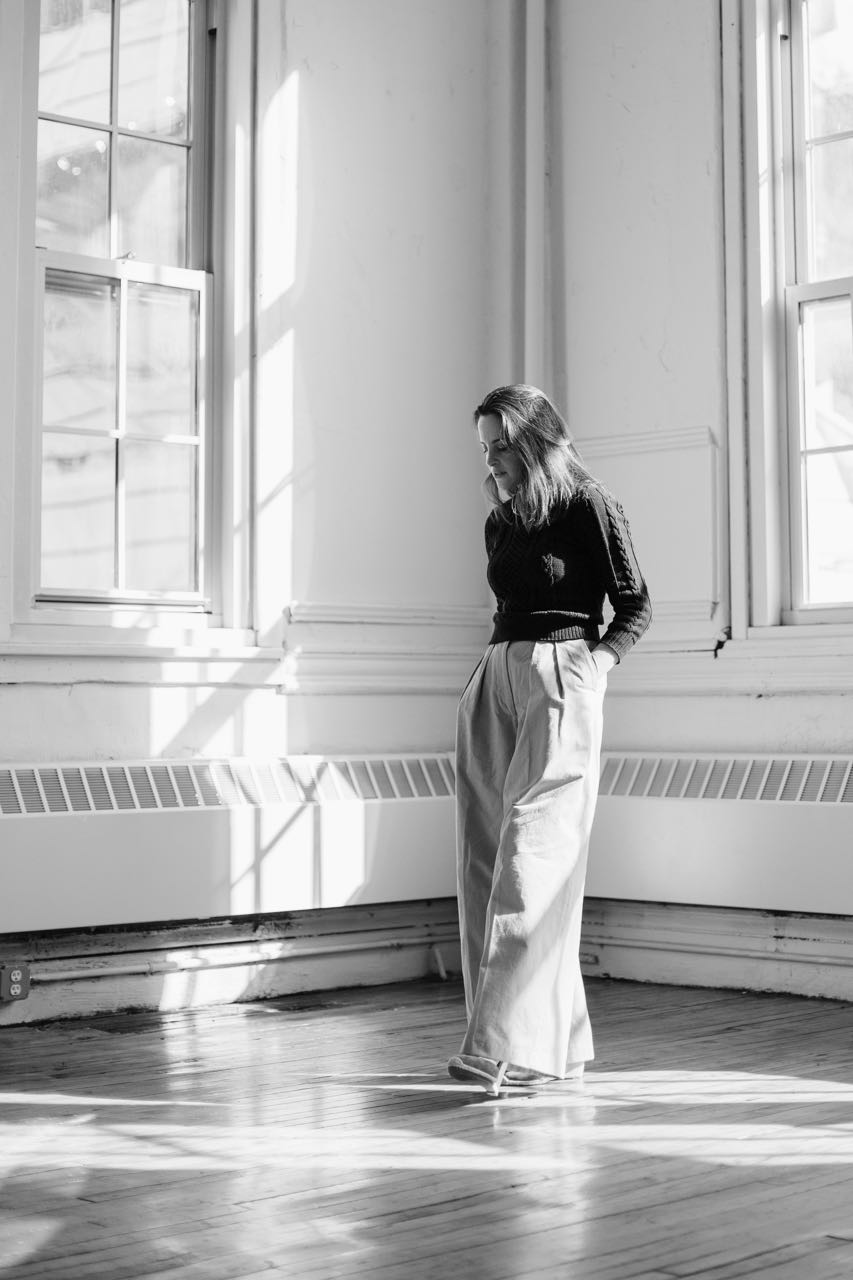
You mentioned that you’d been interested in directing for a while. Do you have a memory of the first time you got interested in it?
I do. It was totally Marina Abramović. I was introduced to her work in college. I took a class in college on experimental theatre, and there’s the photo of her and her partner, and they braided their hair together and stood for a very long time. I loved it so much. I didn’t even see the live performing or footage of the live performance. [Just] the photograph, and it was a xeroxed image from another book, so it wasn’t even a very clear image, but there was something about that image that was just so evocative and true to me, and also the way in which it was its own reality. It’s not like anything in life, but it seemed to point to everything in life that I was like, “Oh, I want to make decisions like that,” and I wanted to try to solve that problem of how do you express in a very simple gesture a complicated thing, a complicated emotional idea. That really made me look at directing a different way.
I think before, I felt more like directing was something that grown-ups do. It didn’t occur to me. Then I directed a project in college that was impressions on things. I think that it was maybe an hour, but it probably felt like four hours. I’m not sure how interesting it was to anyone other than me and maybe my parents. I think that in some ways the idea of expressing one’s self in that way was intimidating to me for a very long time. It was sort of nice to come back to it now.
Have you found with directing that the way you go about your day and your life is different in the sense of balancing professional and personal?
I do. I feel like sometimes working on a play as an actor, the thing that I’m always looking at or trying to discover is the interiority of the character, and so I feel like that makes me then feel more interior when I’m working. It’s something I have to fight against, because with a family you can’t do that all the time. You have to be available to them. But as a director, it doesn’t feel like what I’m trying to do is tap into my own interiority all of the time. Instead, there is more of a sense of looking outward and looking at images and looking at the world. When the world looks this way, what does it seem like it means? It seems like it is more of like a lifted outward gaze rather than being an inward gaze. I do enjoy that.
With everything happening in the world now, does it make you go back and think about women in theatre differently?
I think that I felt it was very rare for a woman to be a director. I knew that I loved theatre, and I do think that’s why I tumbled into expressing my love for it through acting more than directing. And, it seemed to me the only women who were directors were real huge, like capital-V Visionaries. I did not think of myself that way. I thought that if I wasn’t that, then there was no place for me. It’s a nice thing to discover that there are all different kinds of directors and there are all different kinds of plays and that women can do those, too.
I really thought that if you didn’t have a big idea like Julie Taymor or Tina Landau or Anne Bogart, you had no place doing it, and so I kind of self-selected myself out of that group. I do think that’s a part of it. I also think that it was a limiting perception for those women, because I do think they have incredible visions, but I also think they do very delicate and invisible work that is really beautiful, and I think that they probably feel unseen in that way, and that’s frustrating.
Also, with everything happening now, does it make you think about things in the entertainment industry differently? Just the fact that there are all these conversations now, which even if it’s information everybody knew, just the fact that they are happening?
Yes. I think the fact that it’s happening is incredibly important, because I really think that just having the conversation is changing the climate. I get really frustrated when I see people say, like, “Why didn’t she say something,” or, “Why didn’t she leave,” or, “Why didn’t she run away,” and it’s because that paradigm literally did not exist. I feel that people talking about it and bringing those things that were secret and internalized out into the open is creating a new paradigm where somebody is being given more choices and the culture is opening more choices to women, when really the culture offered only one choice before. I get mad talking about it. I get livid. That the culture explicitly told women that you have to deal with it, that you have to figure it out. If you wanted to participate professionally, then you had to figure out how you’re going to deal with this part of your profession or with this necessary evil.
I do feel in some way that another horrible thing that happened is that women who figured out how to deal with it and internalize it were perceived as if they were strong and knew something, and women who were not able to deal with it, and so then wanted to remove themselves from it—which I think is an incredibly strong decision to make, to have a passion for something and a desire and to say to yourself that the terms of it don’t work for me, therefore I’m going to leave it and walk away—that those women were weak.
I also think there’s a kind of cultural amnesia going on—people saying, “We had no idea,” or “Who knew?” The entire culture is designed to facilitate this behavior. That men in power do things like this, and if a woman wants to be included in their sphere then she has to know how to handle it. And handling it means not taking things personally, not being a tattle, not blowing things out of proportion. I definitely learned that that’s how a woman survived professionally. And that it was, up until a few months ago, a sophisticated position to take. Until a few months ago, I was someone who prided myself on handling it. I thought it was a skill and that I was good at it—and now I feel like part of the problem and a bit of a sucker. The cost of handling it of course is dissociating from oneself. Which is unhealthy and a first step in developing depression and certainly not a behavior I want to continue to model.
I also want to say there are a lot of men in power—directors, artistic directors— that I’ve worked with who are not like this. So there is a model. Power and manipulation are not inexorably linked.
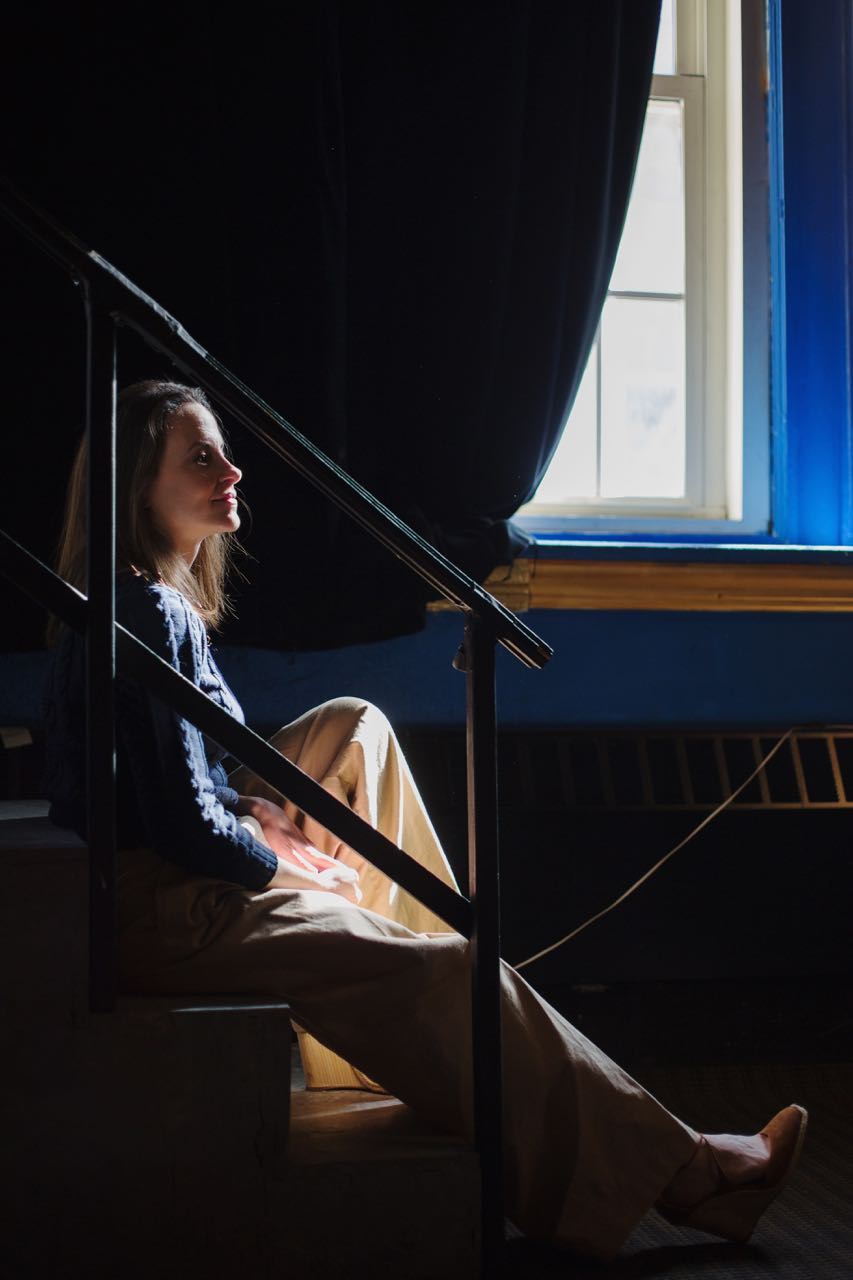
In the future, in terms of directing, is there a certain type of theme or type of situation that you’re interested in exploring that way? What’s the dream for the next couple of years?
I think the two dreams that I have are [first], could I do Shakespeare? Sam Gold’s production of Hamlet was so thrilling and so satisfying to me as an audience member and as a theatre lover, and I think to myself, could I engage with a text in that way and make it current for people and also honor what it is? I would like to have that challenge and to figure it out. I think that the other thing is, this play definitely is a familiar reality. I think that maybe I would like to also try something where the world is much more unknown and unfamiliar to the audience, and so rather than the director’s work being to give sign posts of familiarity, instead it would be creating something where you’re saying this is unfamiliar, and the challenge of creating a world that’s unfamiliar but also compelling.

